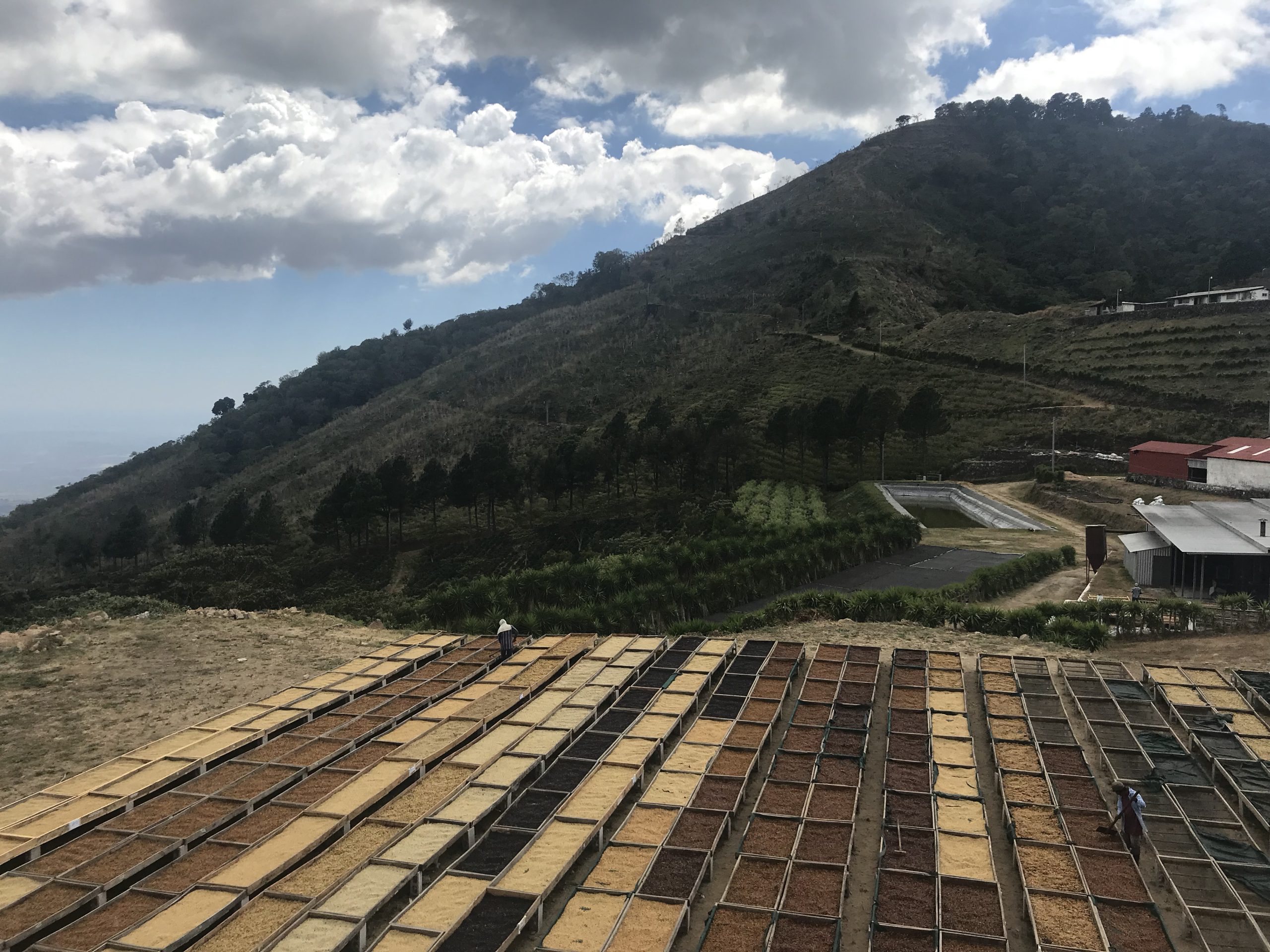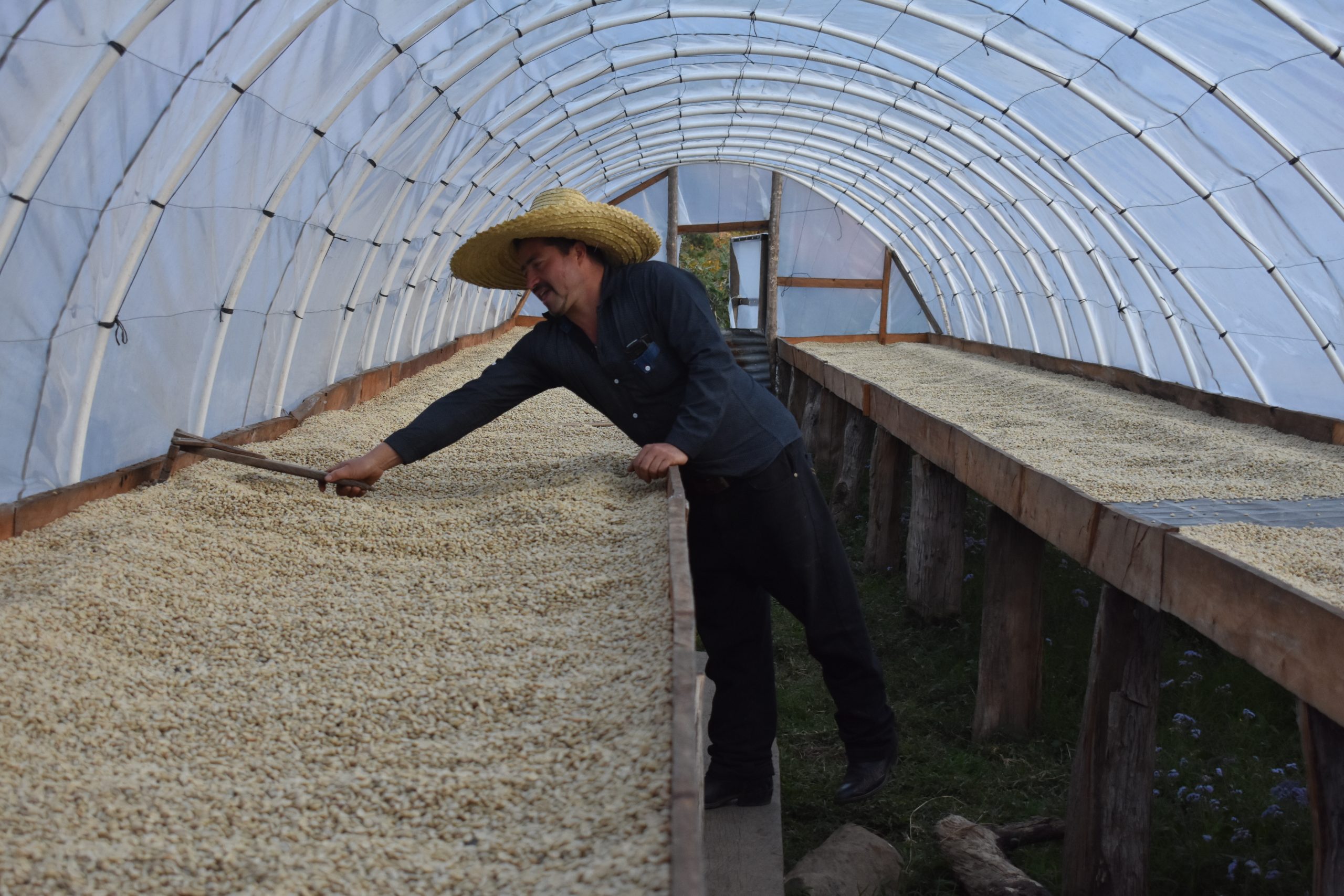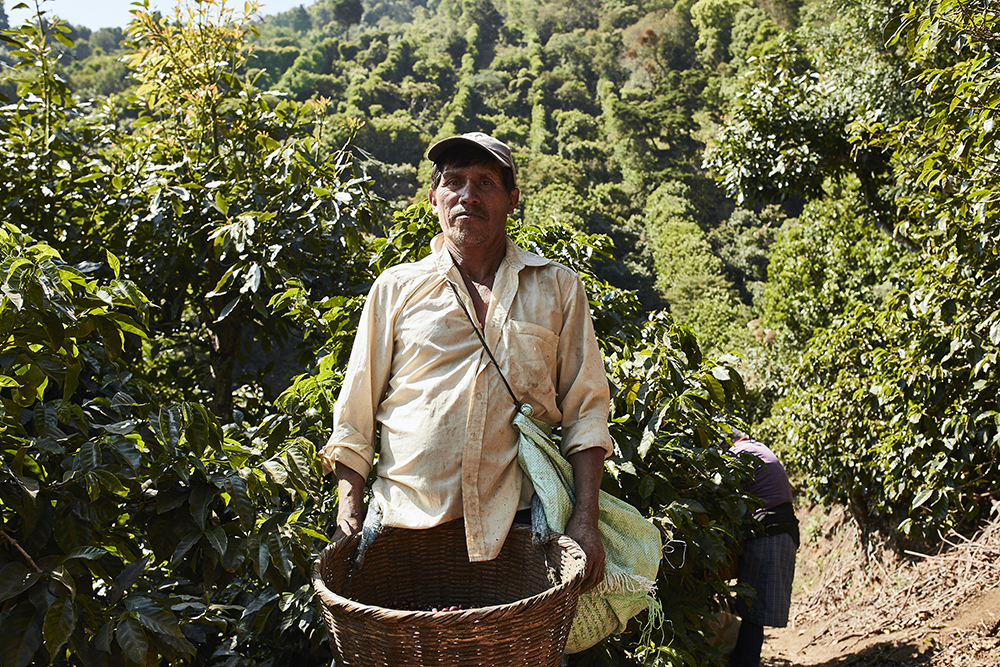Our Sourcing Strategy
There are several reasons why we buy coffees from El Salvador. First of all they have a range of very good all-round coffees that everyone tends to like. Secondly they also have a great climate for coffee production and especially for drying naturals and honeys.
We buy coffees directly from the farmers in two regions, Santa Ana and Usulatan. We mainly buy washed coffees of the Bourbon cultivar, and we also buy wide range of processes such as honeys, naturals, and experimental processes.
The relationships
We have two strong relationships in El Salvador. The first is with Jasal, a family run operation with many different farms and one wet mill.
The other long-standing relationship is with Los Pirineos that is a farm and wet mill that was run by the late Gilberto Baraona.
We have personal relationships with the producers we work with, and we regularly visit their farms. We have insight in how they treat their workers, and a good overview of their ethical standards. They have employees that have been there for decades, and they have realised that investing in people is also investing in the quality of the coffees.
The Cultivars
The main cultivars grown by our producers are different types of Bourbon including the well known ancient Bourbon Elite, and a hybrid they call San Francisco that is a cross between the old Bourbon and Pacas (a dwarf Bourbon). Other common cultivars are Catuai, Pacamara and some lots that are a mix. We do also have some experimental lots of other exotic cultivars, and more to come in the next few years.
Picking and selection
The producers we work with in El Salvador have an impressive picking standard, picking the ripest and most uniform selection of cherries of all the countries are farms we have seen. Firstly, the maturation is relatively uniform, and they let the cherries mature very well before they are picked. Secondly the workers are very well trained, and they have strict quality control on selection and hand sorting. Normally they have one opening pass, where the amount and degree of ripeness is relatively low. After this they will have two main passes for the best selection, and then a fourth pass to clean and strip the trees. If the maturation is optimal and uniform, they might only do three pickings per area. In general there will be three weeks in between every pass to let the cherries mature properly. The producers will normally employ a mix of permanent workers and casual workers for the harvest season. In most cases, our producers hire locally and try to pay their workers well to inspire loyalty and quality in return. They also have managers who monitor the picking and hand sorting before it goes in to production.
Processing
Washed coffees
We have three flavours of washed coffee in El Salvador, washed (lavado), soaked and double soaked. In El Salvador (and much of Central America), wet mills use mechanical pulpers like Jotagallo or Ecopulper. These machines start by taking off the skin and pulp. The second optional step is to mechanically remove the mucilage by spinning it quickly. This can remove 80-90% of the mucilage from the parchment, with the rest staying on the parchment during drying. This is the standard washed process. When one of our lots says washed or lavado, it’s this process. In other places they would call it white honey.
Soaked and double soaked
Many of our coffees are soaked, meaning we add an additional step of soaking overnight in clean water to remove any remaining mucilage. We like this process for a variety of reasons, including a transparent cup profile and more uniform drying for improved shelf life.
The newest experimental process is called double soaked. We keep all the mucilage (skip the spinning step), then we ferment the coffees under water overnight, rinse and wash it in clean water, and then we soak it again for another 10 hours. This is a similar process to what they traditionally do in Ethiopia. The idea is to take the same cherries and adjust the pulping/fermentation process to see how the flavours are changed. So far the results have been great!
Honeys
We do more honey coffees from El Salvador now than before. The producers keep all the mucilage on the beans (full honey) and the majority is dried on raised beds in sun. Some are dried on beds under shade and on patios.
Naturals
As for naturals, the majority are dried on raised beds in sun. Some lots are dried on beds under shade and on patios.
Drying
Drying is traditionally done on concrete or clay patios. But many producers have also started to dry coffees on drying beds. Depending on the altitudes, the temperature will vary, and so will the drying times. But this can also be managed by building up the layers of cherry on the bed. Many Central American coffees deteriorate quickly and taste old even within 6 months of the harvest. We think this has a lot to do with the drying, and if you don’t have awareness the coffee can dry in 2-4 days. We have a lot of dialogue and have done many trials to increase drying times. In most cases it can be adjusted with layers and covering the parchment mid to let it rest and to get a more homogenous drying helps on both aging and cup profile. For commodities and generic coffees many larger producers and/or exporters are also using guardiolas (mechanical dryers), but none of the coffees we are buying is mechanically dried.
Harvesting season: December – March
Arrival times: April – June
Quantities: Varies from 5 – 100 bag lots. Average 20 bag lots
Packaging: 69 kg grainpro bags
Price levels: 9,50 – 12 USD/kg, average around 11,00 USD/kg
Cultivars: Mainly bourbon, additionally Catuai, Pacamara and some rare excotic cultivars
Processes: Fully washed, honeys, naturals. Sundried on patio and african beds in sun and shade
Flavor profiles: Red berries, plum, stone fruit, florals, dried fruits, cocoa and hazelnuts
Usage: Widely used for filters, as single origin espresso and in espresso blends.Shelf life: Normally holds up well for 9 months to a year. We can never guarantee more than 6 months after arrival for any coffees
El Salvador videos
El Salvador blog posts

“Special preps” – reviewing concepts and some Salvadoran names
In recent years, experimental fermentation has been a growing trend in the specialty coffee industry, so we frequently see more terms like special preps, anaerobic, extended fermentation…. etc. These have been used to describe some special preparations – a more controlled and adventurous approach that allow us to create techniques […]

Outstanding Central American coffee producers ➡️ Honduras and El Salvador
More than 10 years of exploring, tasting, and searching for the best coffee in the world led us to Central America, where we marveled at the amazing and diverse beans these countries are producing. So, of course, we also have in our offer list some truly outstanding coffee from El […]

The impact of COVID-19 at origin, and how it might affect your green buying
We are all staring into the crystal ball, trying to predict how our industry will look in the aftermath of the curfews and lock downs. Everyone in the specialty coffee value chain is adapting on the fly, and that includes importers. We are working to keep everyone in the value […]